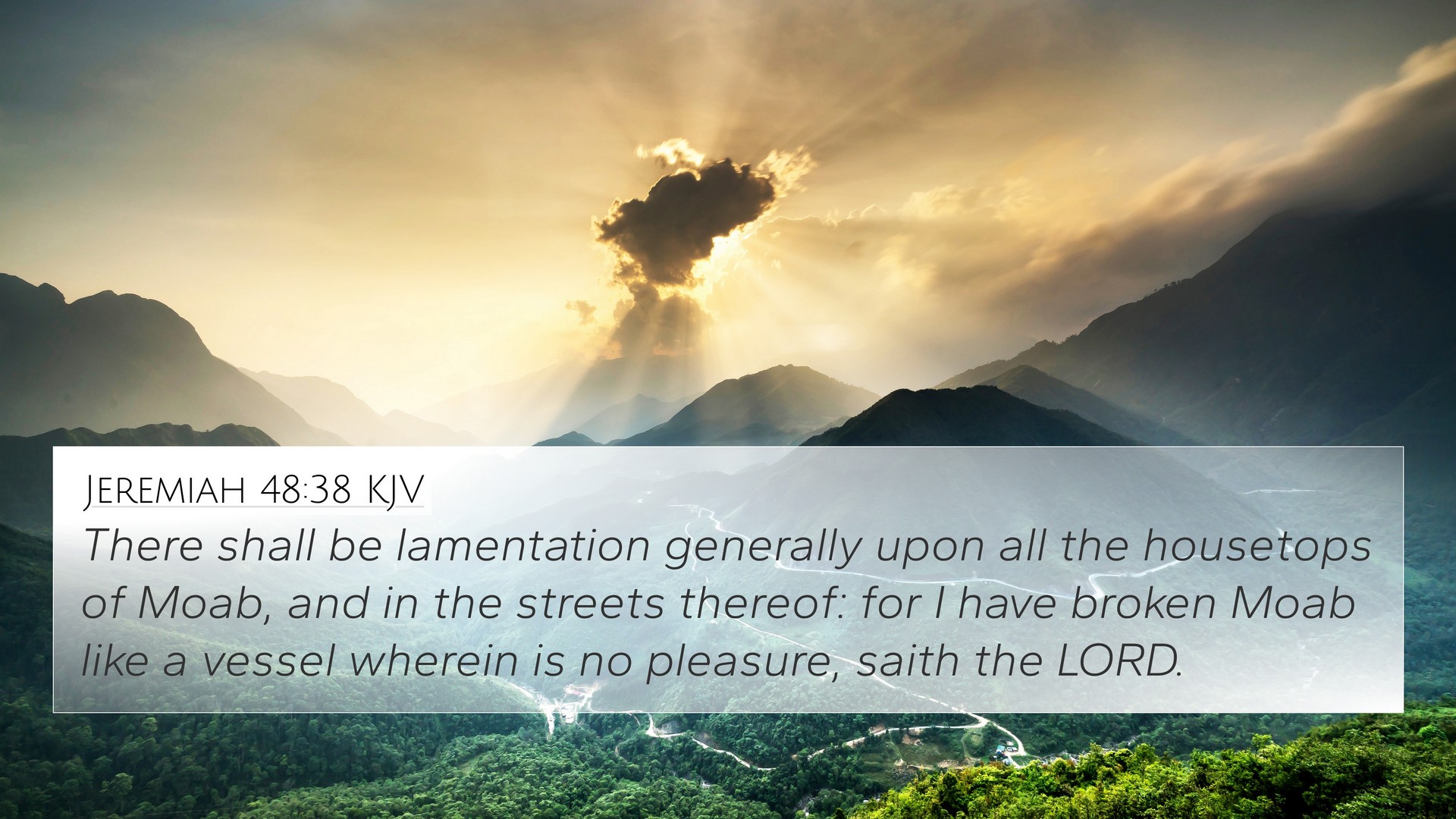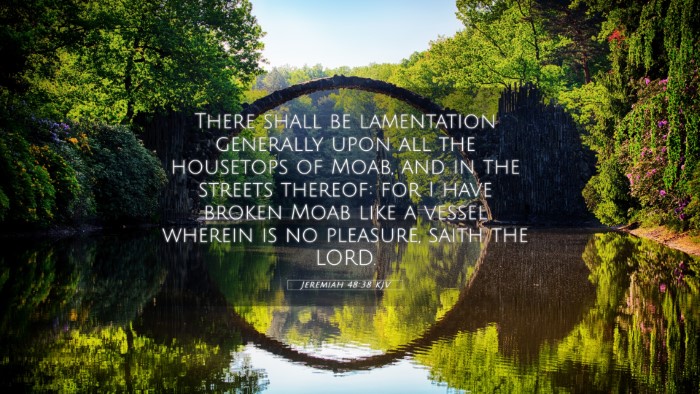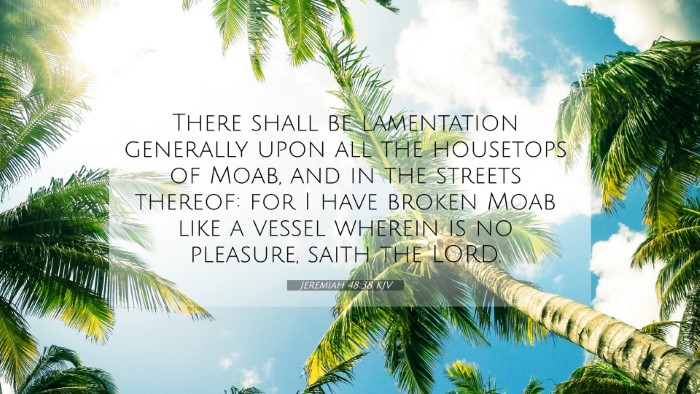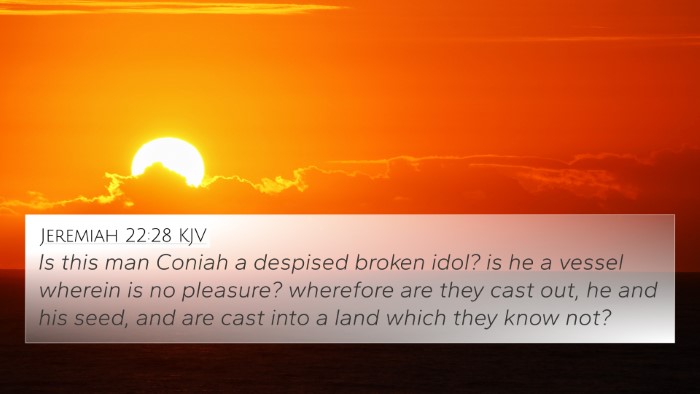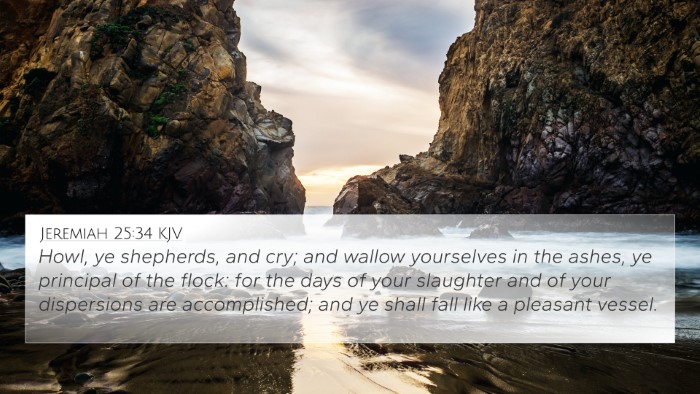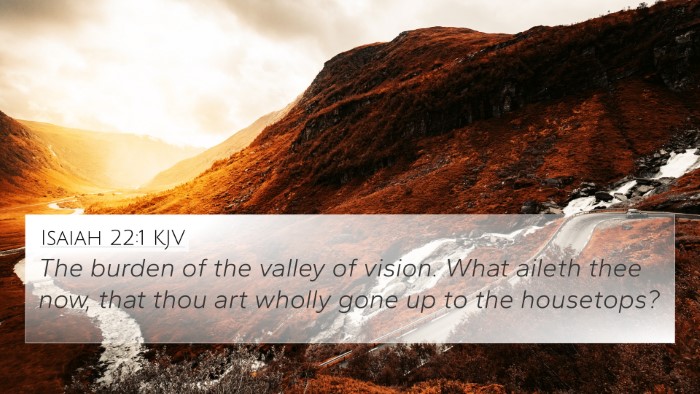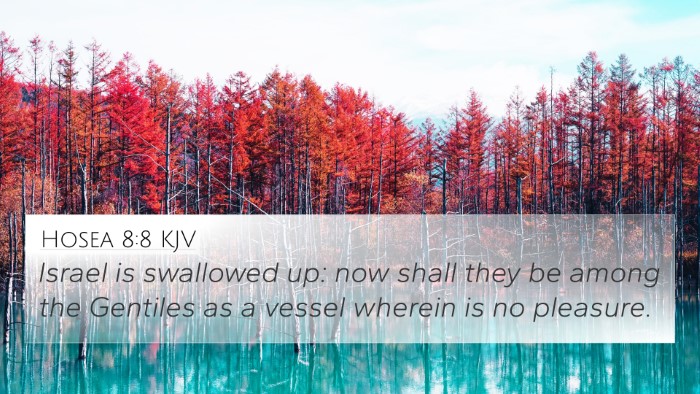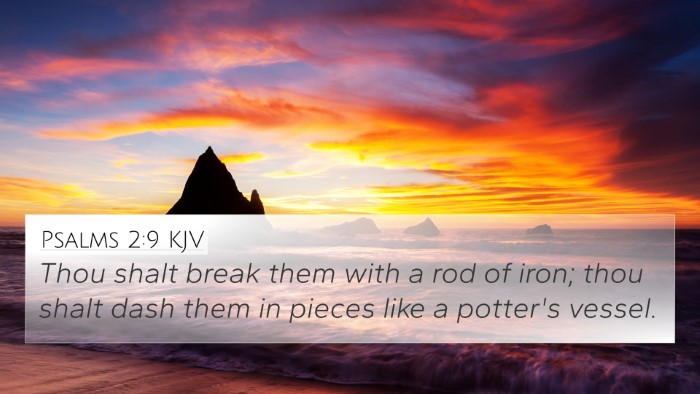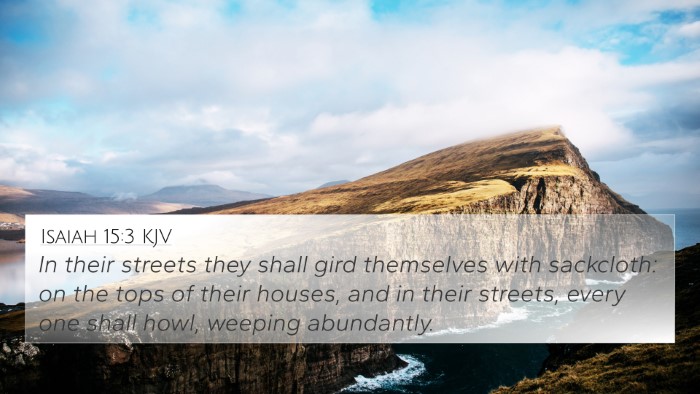Understanding Jeremiah 48:38
Bible Verse: Jeremiah 48:38
“There shall be lamentations generally upon all the housetops of Moab, and in the streets thereof; for I have broken Moab like a vessel wherein is no pleasure, saith the Lord.”
Context and Overview
This verse speaks of the impending destruction and mourning that will come upon the land of Moab due to God’s judgment. It captures the emotional landscape of a nation facing divine wrath, revealing the seriousness of sin and the consequences that follow.
Meaning and Interpretation
- Judgment of God: The lamentations signify deep sorrow and regret as the people of Moab face the consequences of their actions against God.
- Symbolism of Mourning: Household and public spaces are marked by mourning, highlighting that no place is free from the effects of God's judgment.
- Metaphor of Broken Vessels: The imagery of Moab as a broken vessel emphasizes fragility, indicating that their strength is of no value without God’s support.
- Covenant Dynamics: The verse reflects the broader theme of covenant obedience and the repercussions of turning away from God's commands.
- Inter-Biblical Dialogue: This judgment resonates with other texts such as Isaiah and Ezekiel, where similar themes of God's judgment on nations are explored.
Commentary Insights
Matthew Henry Commentary
Henry emphasizes the inevitability of God’s judgment when a nation turns to sin. He highlights that the lamentations denote not just physical destruction but spiritual decay as well. The broken vessel imagery serves as a poignant reminder of how easily pride can lead to downfall.
Albert Barnes Commentary
Barnes points out that the reference to the "housetops" and "streets" exemplifies widespread despair, demonstrating that all sectors of society are affected by God’s judgment. He asserts that this serves as a warning to modern nations about the consequences of moral decay.
Adam Clarke Commentary
Clarke elaborates on the significance of Moab's historical interactions with Israel and how rejection of God leads to desolation. He notes that this calamity was not just a singular event but part of a larger narrative of God’s relationship with nations.
Cross-References and Thematic Connections
This verse can be linked with several other Bible verses to enhance understanding and reveal deeper themes.
- Isaiah 15:3: “In their streets they shall gird themselves with sackcloth...” - A similar depiction of mourning in Moab.
- Lamentations 1:1: “How lonely sits the city...” - Reflects on the desolation and sorrow of a city under judgment.
- Ezekiel 25:8-11: pronouncement of judgment against Moab, paralleling Jeremiah’s themes.
- Zephaniah 2:8: A declaration of judgment against the people of Moab for their pride.
- Matthew 23:37: Jesus' lamentation over Jerusalem echoes the sorrow found in Moab’s judgment.
- Revelation 18:10: Describes the fall of Babylon as a similar reality of divine judgment.
- Proverbs 16:18: “Pride goes before destruction...” - A clear thematic connection to the reasons behind Moab’s downfall.
Tools for Bible Cross-Referencing
Utilizing tools for Bible cross-referencing can enhance the study of scripture.
- Bible Concordance: Navigates keywords, allowing for detailed comparative Bible verse analysis.
- Bible Cross-Reference Guide: Aids in discovering thematic Bible verse connections.
- Cross-Reference Bible Study: Offers methods for linking Bible scriptures thematically.
Conclusion
Jeremiah 48:38 serves not only as a historical account of judgment but also as a profound reminder of the consequences of turning away from God. By understanding this verse within its context and its connections to other biblical texts, we can draw vital lessons for our lives today.
Final Thoughts
The somber message of this verse echoes through the ages, invoking reflection on how nations and individuals respond to divine guidance. The tools and methods for cross-referencing greatly enhance our ability to grasp the interconnectedness of God’s message throughout the Bible.
